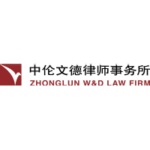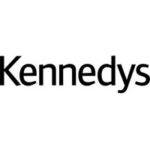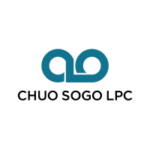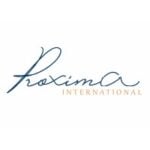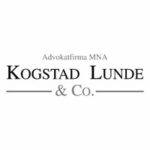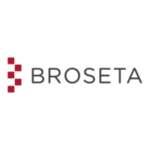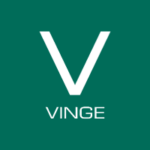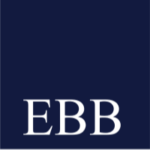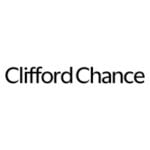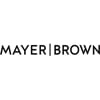-
How is the writing of insurance contracts regulated in your jurisdiction?
Writing of insurance contracts is primarily regulated by the Swiss Insurance Contract Act (ICA) which sets out notably the aspects related to the conclusion and termination of the contract, the insurer’s duty to provide information, as well as the declarations that must be made by the insured. Subject to the mandatory provisions of the ICA, insurance contracts are also governed by the provisions of the Swiss Code of Obligations (CO).
Finally, insurance companies in Switzerland are subject to supervision by the Swiss Financial Market Supervisory Authority (FINMA). The supervision is regulated by the Insurance Supervision Act (ISA), the Insurance Supervision Ordinance (ISO) and FINMA circulars.
-
Are types of insurers regulated differently (i.e. life companies, reinsurers?)
The Insurance Supervision Act (ISA) regulates the supervision of insurance and insurance brokers. Every company conducting insurance business is subject to these provisions, including life companies and reinsurers (the latter may, under certain conditions, be exempt from the Swiss Financial Market Supervisory Authority (FINMA) authorization).
However, the conditions related to certain types of insurance may vary, and specific provisions are therefore set out in the ISA, the Insurance Supervision Ordinance (ISO) and FINMA circulars (such as life insurance, motor vehicle liability insurance, legal protection insurance, etc.). As per example, insurance companies that engage in direct life insurance may not operate in any other branch of insurance, except for accident and health insurance (art. 12 ISA).
-
Are insurance brokers and other types of market intermediary subject to regulation?
Insurance brokers and other types of intermediaries are subject to regulation under the Insurance Supervision Act (ISA) (please refer to the additional elements under question 6). The ISA sets out various obligations and requirements ensuring solvency and fairness of insurers, requiring transparent business practices and supervising products offered by insurers, especially regarding policyholder protection.
-
Is authorisation or a licence required and if so how long does it take on average to obtain such permission? What are the key criteria for authorisation?
Insurance companies must obtain authorization from the Swiss Financial Market Supervisory Authority (FINMA) in the form of a license before they can begin their operations. Depending on the complexity of the proposed model, the type of insurance planned, and the quality of the submitted application, the license is granted through a process that may takes several months, generally no more than six months.
The basic requirements for a license for an insurance company are provided in the Insurance Supervision Act (ISA). Other requirements and provisions are described in greater detail in the Insurance Supervision Ordinance (ISO) and FINMA circulars.
The basic requirements include:
- legal form: limited company or cooperative;
- minimum capital requirement: CHF 3 to 20 million, depending on the insurance sector;
- equity capital: sufficient free and unencumbered equity capital (solvency);
- establishment fund: covered costs of foundation, organization and extraordinary expansion of business activities;
- object of the company: activities directly associated with insurance;
- foreign companies must have a branch in Switzerland and appoint a general agent.
Further additional provisions apply to each type of insurance (life insurance, non-life insurance, health insurance, reinsurance, etc.).
-
Are there restrictions or controls over who owns or controls insurers (including restrictions on foreign ownership)?
Under Swiss law, there are restrictions and regulatory controls over who can own or control insurance companies, including provisions that affect foreign ownership. These controls are primarily aimed at ensuring the stability, transparency, and proper supervision of the Swiss insurance market.
Anyone intending to acquire, directly or indirectly, a participation in an insurance company with its registered office in Switzerland must notify the Swiss Financial Market Supervisory Authority (FINMA) when such participation reaches or exceeds 10 percent of the company’s capital or voting rights. FINMA may prohibit such a participation or make it subject to conditions if, due to its nature or significance, it poses a risk to the insurance company or may harm the interests of policyholders.
-
Is it possible to insure or reinsure risks in your jurisdiction without a licence or authorisation? (i.e. on a non-admitted basis)?
An authorization from the Swiss Financial Market Supervisory Authority (FINMA) is required to conduct insurance operations in Switzerland. However, there are some exceptions, for instance:
- Insurance companies with their registered office abroad that engage in reinsurance only in Switzerland (art. 2 para. 2 let. a ISA);
- Insurance brokers who offer small-scale insurance as a supplement to a product or service (art. 2 para. 2 let. f ISA).
-
Is a branch of an overseas insurer, insurance broker and/or other types of market intermediary in your jurisdiction subject to a similar regulatory framework as a locally incorporated entity?
Both local entities and foreign branches must comply with Swiss insurance laws and regulations, including solvency and capital adequacy requirements, operational conduct standards, and consumer protection rules. Both are also subject to supervision by the Swiss Financial Market Supervisory Authority (FINMA).
For EU companies, the 1989 Insurance Agreement between Switzerland and the EU provides for reciprocal freedom of establishment for non-life insurance companies. It allows Swiss non-life insurance companies to establish and acquire agencies and branches in the EU. Reciprocal conditions apply to EU non-life insurance companies operating in Switzerland. That means that EU companies can establish in Switzerland if they observe the same conditions as Swiss companies.
Moreover, a bilateral agreement or a specific regulatory arrangement may exist between Switzerland and a non-EU country that could make it easier for companies from such country to operate in Switzerland.
Reinsurers domiciled in Switzerland must be licensed to conduct reinsurance activities. This rule does not apply to insurance companies registered outside Switzerland which only offer reinsurance in Switzerland (art. 2 para. 2 let. a ISA).
-
Are there any restrictions/substance limitations on branches established by overseas insurers?
There are specific restrictions and substance requirements for branches established in Switzerland by overseas insurers. These are also governed by the Swiss Insurance Supervision Act (ISA) and enforced by the Swiss Financial Market Supervisory Authority (FINMA). As any other insurance subject to ISA, branches established by overseas insurers must have obtained authorization from FINMA to conduct its insurance activities in Switzerland.
Specific legal provisions also apply in addition to these branches, such as the obligation to appoint a responsible general agent who is resident in Switzerland and can represent the branch in legal and regulatory matters (art. 15 para 1 let b ISA)
-
What penalty is available for those who operate in your jurisdiction without appropriate permission?
Anyone who intentionally concludes insurance contracts on behalf of an insurance company that does not have the authorization required by law or acts as an intermediary for the conclusion of such contracts or distributes insurance contracts through an insurance intermediary who does not have the registration required by law can be punished with imprisonment for up to three years and/or a fine (art. 87 para. 1 let. a and b ISA).
If the act was committed negligently, the penalty shall be a fine not exceeding CHF 250,000.- (art. 87 para 2 ISA).
Finally, the Swiss Financial Market Supervisory Authority (FINMA) also has administrative powers, meaning that it can order the immediate cessation of unauthorized activities, close down operations or seize assets to protect policyholders.
-
How rigorous is the supervisory and enforcement environment? What are the key areas of its focus?
In its role as supervisory authority, the Swiss Financial Market Supervisory Authority (FINMA) only supervises institutions it has authorized to engage in financial market activity. This supervisory function is prudential in respect of banks, securities firms, insurance companies and other financial service providers: these institutions must always have adequate capital buffers and liquidity, and should have their risk exposure under control. FINMA must also ensure that their senior management comply with the professional and personal requirements set out in financial market legislation. FINMA monitors these requirements regularly and thoroughly, whilst also taking a proactive perspective. A risk-based approach is pursued by FINMA to ensure that its priorities in respect of prudential supervision are correct.
FINMA adopts a principle-based, risk-oriented approach to its supervision of insurance companies. The greater the risk potential of an insurance company, the more intensive the supervision.
FINMA assigns all supervised institutions to one of five supervisory categories. This categorization enables FINMA to implement an appropriate level of supervision and deploy its resources effectively.
Tools:
Insurance companies are supervised more or less intensively depending on their category. Some supervisory tools are familiar and have been used successfully in the past, while others apply a new dynamic process-based approach. In general terms, they are either:
- cross-sectoral or
- sector-specific.
Groups and conglomerates :
For supervised insurance groups and insurance conglomerates, FINMA applies the group supervision in addition to the supervision of the single entities.
Annual report and supervisory report:
Insurance companies must produce an annual report as of 31 December each year as well as a supervisory report for FINMA. FINMA provides an annual overview of the sector in its report on the insurance market. The report contains general information on the market in Switzerland including aggregated sector-specific balance sheet and profit and loss data.
Branches of foreign insurance companies:
Branches of foreign insurance companies are subject to supervision by FINMA. They are required to prepare annual financial statements in accordance with Swiss law and to submit annual reports and supervisory reports.
FINMA also operates a rating system used to perform regular evaluations on the institutions subject to prudential supervision by FINMA, although these ratings are not made public. If any ratings drop into negative territory, FINMA subjects the respective companies to more intensive supervision.
Source: FINMA (https://www.finma.ch/en/supervision/insurers/)
-
How is the solvency of insurers (and reinsurers where relevant) supervised?
The solvency of insurers and reinsurers is supervised through the Swiss Solvency Test (SST) which is designed to capture the economic risk situation of insurance companies. SST is a modern supervisory tool which adopts a risk-based and total balance sheet approach. Insurance companies are required to provide a market conform assessment of the value of their assets and liabilities. Possible changes to these balance sheet positions are then modelled over a one-year period in order to arrive at the total required capital.
-
What are the minimum capital requirements?
In Switzerland, insurance companies must meet strict minimum capital requirements to ensure their solvency and financial stability. These rules are primarily set out in the Insurance Supervision Act (ISA) and the Insurance Supervision Ordinance (ISO). The minimum capital requirements are CHF 3 to 20 million, depending on sector.
When an insurance company’s activities extend to several branches or several types of risks, the branch or risk requiring the highest amount is taken into account for determining the minimum capital (art. 6 ISO).
For insurance companies engaged in life insurance, the minimum capital requirements are CHF 5 to CHF 12 million. For non-life insurance companies, the minimum capital requirements are CHF 3 to CHF 8 million. Finally, for reinsurance companies, the minimum capital requirements are CHF 3 to CHF 10 million.
The Swiss Financial Market Supervisory Authority (FINMA) may, within the limits set out in ISA (currently CHF 3 to CHF 20 million), depart from the amounts above mentioned if particular circumstances so justify, notably the insurance company’s exposure to risk and the expected volume of business.
-
Is there a policyholder protection scheme in your jurisdiction?
The Insurance Supervision Act (ISA) provides specific mechanisms in place for policyholder protection, especially in the event of an insurance company’s financial difficulties. However, it is not a “policyholder protection fund” in the way that some countries (like EU Member States) have a formal insurance guarantee scheme.
Under Swiss law policyholders’ claims enjoy a privileged status if an insurer goes bankrupt. Specifically, insurance claims rank above other unsecured creditors in bankruptcy proceedings.
Insurers are legally required to maintain special segregated assets called “tied assets”. These assets are separately held and protected for the exclusive benefit of policyholders
Moreover, if an insurer shows signs of financial difficulties, the Swiss Financial Market Supervisory Authority (FINMA) can intervene early imposing recovery measures, restricting dividend distributions, ordering a transfer of the insurance portfolio to another insurer or, ultimately, opening restructuring or liquidation proceedings.
-
How are groups supervised if at all?
The Swiss Financial Market Supervisory Authority (FINMA) can place insurance groups and conglomerates registered in Switzerland under group supervision, which applies in addition to supervision of the single entities.
The key focus of group supervision, in which groups are viewed from a consolidated perspective, is to analyze and assess the risks entered into by major insurance groups, most of which operate internationally. Group supervision also looks at the groups’ internal processes and structures.
Various tools are used in group supervision, such as:
- Analysis and reporting on the solvency, risk situation/concentration and compliance with corporate governance requirements of groups in their totality.
- Preventive measures (if necessary, based on reviews of statutory and regulatory reporting requirements, threshold values and other requirements).
- Intervention in the event of infringements of supervisory requirements.
-
Do senior managers have to meet fit and proper requirements and/or be approved?
Under the Insurance Supervision Act (ISA) and the Insurance Supervision Ordinance (ISO), senior management (executive board members) and the board of directors must be approved by the Swiss Financial Market Supervisory Authority (FINMA) before taking office. Their appointment is part of the license application process for new insurers or must be separately notified for existing insurers.
Individuals must meet (i) professional qualifications (“fit”) (necessary experience, skills, and technical knowledge for their specific role) and (ii) personal reliability (“proper”) (good reputation, integrity, etc.). The “fit and proper” standard must be maintained throughout the manager’s tenure.
-
To what extent might senior managers be held personally liable for regulatory breaches in your jurisdiction?
In Switzerland, senior managers of insurance companies can be held personally liable for regulatory breaches, under both civil and administrative law — and in serious cases, even criminal law.
Under the Swiss Code of Obligations (CO), senior managers (such as members of the board of directors and the executive board) have a duty of care and loyalty toward the company. If they breach these duties — by negligence, misconduct, or failure to supervise — and cause damage (to the company, shareholders, policyholders, or creditors), they can be personally sued for damages (art. 754 CO).
From an administrative perspective, under the Insurance Supervision Act (ISA), the Swiss Financial Market Supervisory Authority (FINMA) can take direct enforcement actions against individuals, such as banning a senior manager from holding management positions in regulated financial institutions, ordering to dismiss the manager or engaging in personal sanctions.
Finally, in certain serious situations, criminal proceedings may be initiated under the ISA and/or the Swiss Criminal Code.
-
Are there minimum presence requirements in order to undertake insurance activities in your jurisdiction (and obtain and maintain relevant licenses and authorisations)?
Subject to any contrary provisions set out in international treaties, a foreign insurance company wishing to carry out insurance activities in Switzerland must be authorized to carry out insurance activities in the country where it has its registered office and must establish a branch in Switzerland, register it in the commercial register, and appoint a general agent to manage it.
The foreign insurance company must have at its principal place of business capital that complies with the provisions of the Insurance Supervision Act (ISA) and ensure sufficient solvency to cover its activities in Switzerland. Moreover, it must deposit in Switzerland a guarantee corresponding to a specific fraction of its business volume in Switzerland.
-
Are there restrictions on outsourcing services, third party risk management and/or operational resilience requirements relating to the business?
The Insurance Supervision Act (ISA), Swiss Financial Market Supervisory Authority (FINMA) Circulars (2018/3 and 2017/2) and Financial Market Supervision Act (FINMASA) lay out the principles for ensuring that insurance companies maintain oversight and control over outsourced activities, manage risks associated with third-party service providers, and ensure operational resilience.
Insurers must notify FINMA of material outsourcing arrangements and, in some cases, prior approval may be needed. A detailed outsourcing agreement must be in place, covering performance standards, data protection, audit rights, business continuity, and termination rights.
-
Are there restrictions on the types of assets which insurers or reinsurers can invest in or capital requirements which may influence the type of investments held?
The Insurance Supervision Act (ISA) and the Swiss Financial Market Supervisory Authority (FINMA) Circular 2016/2 (on Investment Policy and Risk Management for insurers) require that insurers and reinsurers follow the prudent person principle when making investments. This principle ensures that the investments are made in a way that is consistent with the long-term interests of policyholders and other stakeholders, prioritizing financial security and risk management.
-
Are there requirements or regulatory expectations regarding the management of an insurer's reinsurance risk, including any restrictions on the level / type of reinsurance utilised?
While there are no specific restrictions on the type of reinsurance utilized, there are regulatory expectations around risk management, diversification and capital requirements.
Insurance companies are required to have a comprehensive risk management framework in place to assess, manage, and mitigate the risks associated with reinsurance. This is consistent with the prudent person principle, which is central to Swiss financial regulation.
Therefore, insurers must develop a reinsurance strategy approved by the board of directors and must monitor and control counterparty risk. There are also various documentation and reporting requirements.
-
How are sales of insurance supervised or controlled?
Insurance companies selling policies directly must meet the requirements of the Insurance Supervision Act (ISA), meaning that they must be licensed by the Swiss Financial Market Supervisory Authority (FINMA), must comply with conduct of business rules (fairness, transparency, duty to inform) and ensure that their employees involved in sales are adequately trained.
The sales (distribution) by insurance intermediaries are also regulated. Two situations arise:
- Tied insurance intermediaries, which are legally assigned to the insurance company for which they offer or conclude insurance contracts. The insurance company is directly responsible for monitoring compliance with the statutory requirements of the ISA. These include, in particular, a good reputation and guaranteeing that obligations are met, for example, in the area of customer information (art. 45 ISA).
- Untied insurance intermediaries (broker) which are directly subject to the supervision of the FINMA and need therefore necessary registration. Insurance companies may not work with untied insurance intermediaries who do not have the necessary registration (art. 44 para. 2 ISA). This applies to legal entities, sole traders and partnerships as well as all individuals who carry out the intermediary activity on a self-employed or employed basis, but also to intermediaries with whom the insurance company does not have a direct contractual relationship and where the corresponding relationship only exists indirectly via a chain of untied intermediaries (known as sub-intermediation).
The insurance company also has a general duty to take measures in the event of indications of abuse, in particular if the insurance company is aware that policyholders or beneficiaries are repeatedly being disadvantaged
-
To what extent is it possible to actively market the sale of insurance into your jurisdiction on a cross border basis and are there specific or additional rules pertaining to distance selling or online sales of insurance?
Cross border business operations in Switzerland are regulated. Active marketing (i.e., approaching Swiss residents to offer insurance) requires prior authorization from the Swiss Financial Market Supervisory Authority (FINMA), even if the insurer is located abroad.
The foreign insurance company must either set up a Swiss branch (subject to FINMA licensing) or obtain specific authorization for cross border activities.
For further information about online sales of insurance, see question 30 below.
-
Are insurers in your jurisdiction subject to additional requirements or duties in respect of consumers? Are consumer policies subject to restrictions, including any pricing restrictions? If so briefly describe the range of protections offered to consumer policyholders
Insurers are subject to additional duties when dealing with private policyholders. These requirements are set out in various legal provisions, such as the Insurance Contract Act (ICA), the Federal Act on Unfair Competition (UCA), as well as regulations issued by the Swiss Financial Market Supervisory Authority (FINMA).
These additional duties include pre-contractual information, right of withdrawal, simplified claims procedure, mandatory content for certain insurance contracts, restriction on cancellation rights, as well as data protection.
In principle, Swiss law does not impose direct price regulation on insurance premiums for most products. However, compulsory insurance (e.g., basic health insurance under the Health Insurance Act (LAMal), motor third-party liability insurance) is subject to price supervision by specific regulators.
-
Is there a legal or regulatory resolution regime applicable to insurers in your jurisdiction?
The Insurance Supervision Act (ISA) includes provisions that allow the Swiss Financial Market Supervisory Authority (FINMA) to intervene in the operations of an insurer when it faces financial difficulties. FINMA has a broad set of tools at its disposal, including supervisory measures, temporary suspension of activities, winding up procedures and resolution strategies.
-
Are the courts adept at handling complex commercial claims?
Swiss courts have extensive experience in handling complex commercial claims involving complex insurance disputes. Moreover, regarding the clarification of technical aspects of such claims, the courts usually appoint experts to support them.
The parties may appeal against the decision of the Court of First Instance before the Court of Appeals, which will reconsider the decision in its entirety. The decisions of the Court of Appeals may be cancelled before the Swiss Supreme Court for legal reasons only. However, the Swiss cantons may designate a court that has as sole cantonal instance for disputes relating to insurance supplementary to social health insurance under the Federal Act on Health Insurance (art. 7 Swiss Civil Procedure Code). In this case, there is no conciliation and the decisions made, whether they are judgements on the merits or not, can only be appealed to the Swiss Supreme Court, regardless of the amount in dispute (Swiss Federal Court decision (ATF) 138 III 2 c. 1).
The Swiss legal framework and the clarity of judicial decisions rendered in insurance matters enable professional stakeholders to benefit from significant understanding and stability regarding applicable rules.
-
Is alternative dispute resolution well established in your jurisdictions?
Alternative dispute resolution (ADR) mechanisms, such as arbitration and mediation, are well established for insurance-related disputes. However, such mechanisms are not mandatory.
Arbitration is provided for in the Swiss legal system as a means of judicial dispute resolution.
Moreover, the Swiss Insurance Ombudsman (also known as the Swiss Insurance Mediation Office) provides a free, neutral and informal dispute resolution service for consumers (private individuals) who have disputes with insurance companies. Insurers are not legally obliged to participate in ADR, but most reputable insurers voluntarily recognize and cooperate with the Ombudsman’s proceedings. The Ombudsman issues non-binding recommendations — the insurer or consumer may still go to court if unsatisfied. However, insurers generally comply with the recommendations issued by the Ombudsman.
-
Is there a statutory transfer mechanism available for sales or transfers of books of (re)insurance? If so briefly describe the process
The Insurance Supervision Act (ISA) allows insurance and reinsurance companies to transfer their portfolios (or parts of them) to another company, such transfer having to be approved by the Swiss Financial Market Supervisory Authority (FINMA) (art. 62 para. 1 ISA). This approval ensures that the transfer complies with all legal and regulatory requirements and does not jeopardize policyholders’ rights
The insurer which desires to transfer the portfolio must submit an application to FINMA. As part of the conditions, the insurer must ensure that policyholders’ rights are not harmed by the transfer. The transfer must also comply with solvency and liquidity requirements, ensuring the insurer taking on the portfolio has the necessary financial resources.
Policyholders must be notified about the transfer, but their consent is not required unless specified in their contract.
Finally, FINMA will assess the financial stability of both the transferor and transferee, including their ability to meet obligations toward policyholders. Once the FINMA has approved the transfer, the transaction is legally binding and the policies are effectively transferred to the transferee insurer.
Policyholders have three months from the individual information to cancel their contract if they want to do so (art. 62 para. 3 ISA).
-
What are the primary challenges to new market entrants? Are regulators supportive (or not) of new market entrants?
The main obstacle for new entrants in the Swiss insurance market is the high level of competitiveness. Indeed, the Swiss insurance market is mature, demanding, and many major players are already present. However, market shares in highly specific, niche areas are obviously accessible.
Regarding regulatory aspects, although they are demanding, they are clearly regulated. Significant changes took place in 2024, so the current system has the merit of providing stability and clarity for the coming years.
-
To what extent is the market being challenged by digital innovation?
Swiss insurance market, like many other global markets, is being challenged by digital innovation, but it is also embracing these changes to remain competitive.
Insurtech sector in Switzerland is growing, as startups are developing digital solutions to streamline insurance processes, reduce costs, and improve customer experiences. AI and machine learning algorithms are also increasingly used to automate claims processing, underwriting decisions and risk assessment, as well as interact as virtual assistant (chatbots). Finally, the Swiss insurance market is exploring the use of blockchain technology for smart contracts, which can automate the execution of contracts and increase transparency in insurance policies.
Swiss consumers are expecting a seamless digital experience. From buying insurance policies to managing claims and obtaining information, there is a push towards online platforms and mobile apps.
Insurers face the challenge of meeting these new developments while balancing regulatory compliance, data protection requirements and consumers protection. The Swiss Financial Market Supervisory Authority (FINMA) has been proactive in ensuring that digital innovation in the insurance market does not undermine the stability and security of the financial system.
However, as more insurers move to digital platforms, there is a growing concern about cybersecurity risks, especially related to data breaches and online fraud. Insurance companies are investing in cybersecurity solutions to protect sensitive customer data.
-
How is the digitization of insurance sales and/or claims handling treated in your jurisdiction, for example is the regulator in support (are there concessions to rules being made) or are there additional requirements that need to be met?
The Swiss Financial Market Supervisory Authority (FINMA) is generally supportive of innovation, including in the areas of digital sales and claims processing. However, FINMA requires that any new digital insurance products or online platforms adhere to existing regulations designed to ensure that consumers are adequately protected, that insurers maintain financial stability, and that they comply with privacy laws.
In other words, there are no significant exemptions from the regulatory framework for digital platforms, but there is flexibility for insurers to adopt new technologies as long as they meet the necessary legal and operational standards. This flexibility is reflected in the possibilities offered by FINMA, in particular with the use of e-signatures and other regulatory tools.
-
To what extent is insurers' use of customer data subject to rules or regulation?
In Switzerland, insurers’ use of customer data is strictly regulated, mainly under the Federal Act on Data Protection (FADP), which was significantly revised and entered into force on September 1, 2023. FADP sets the primary rules for how personal data must be processed, including data collected and used by insurers.
In particular, transferring personal data outside Switzerland is only permitted if the destination country provides adequate data protection (recognized by the Swiss Federal Council) or if appropriate safeguards (such as standard contractual clauses) are in place (art. 16 and 17 FADP). This is particularly relevant for insurers using cloud services or international claims handlers.
In general terms, this legislation includes standard data protection rules, similar to those found in European legislation (GDPR).
-
To what extent are there additional restrictions or requirements on sharing customer data overseas/on a cross-border basis?
Under the Federal Act on Data Protection (FADP), personal data may be disclosed abroad if the Federal Council has decided that the legislation of the State concerned or the international body guarantees an adequate level of protection (art. 16 para 1 FADP).
In the absence of a decision by the Federal Council, personal data may be disclosed abroad only if an appropriate level of data protection is guaranteed, such as (i) a treaty under international law, (ii) data protection clauses in an agreement between the controller or the processor and its contractual partner, notice of which has been given to the Federal Data Protection and Information Commissioner (FDPIC) beforehand, (iii) specific guarantees drawn up by the competent federal body, (iv) standard data protection clauses that the FDPIC has approved, issued or recognized beforehand or (v) binding corporate rules that have been approved in advance by the FDPIC or by the authority responsible for data protection in a State that guarantees an adequate level of protection (art. 16 para 2 FADP).
However, in derogation from the above conditions, personal data may be disclosed abroad in some cases when various conditions are met, which include the explicit consent of the data subject to disclose its personal data, being understood that the disclosure is directly connected with the conclusion or performance of a contract between (i) the controller and the data subject or (ii) between the controller and its contractual partner in the interests the data subject.
-
To what extent are insurers subject to ESG regulation or oversight? Are there regulations/requirements, including in connection with managing climate change and climate change related financial risks specific to insurers? If so, briefly describe the range of measures imposed.
In Switzerland, insurers are increasingly subject to ESG regulation, especially regarding climate change risks and sustainability reporting. The current framework includes sector-specific obligations and general expectations under financial market supervision.
Since January 1, 2024, large Swiss companies — including insurance companies if they exceed certain thresholds — are required to publish an annual sustainability report (Art. 964a, 964b and 964c Swiss Code of Obligations (CO)). This report must describe environmental (including climate), social, employee, human rights, and anti-corruption matters.
Moreover, according to the Swiss Financial Market Supervisory Authority (FINMA) Circulars, insurers are expected to integrate ESG considerations in their risk assessments (including environmental and reputational risks. Climate-related risks must also be factored into insurers’ internal risk models (Swiss Solvency Test (SST)).
Finally, Swiss insurers who operate in the EU or deal with EU clients must comply with EU regulations that set clear requirements for ESG disclosures and the integration of climate-related risks in financial practices.
-
Is there a legal or regulatory framework in respect of diversity and inclusion to which (re)insurers in your jurisdiction are subject?
While there are no specific, mandatory regulations targeted solely at insurers on diversity and inclusion, there are broader frameworks that encourage diversity, equality, and non-discrimination, which impact insurance companies as well.
The Swiss Federal Constitution primarily guarantees equality and non-discrimination. This is a key principle in all areas of law, including insurance, and applies to gender, race, disability, and other protected characteristics.
For companies whose shares are listed on a stock exchange and exceed two of the following thresholds in two successive financial years (balance sheet total of CHF 20 million; sales revenue of CHF 40 million; 250 full-time positions on annual average), unless each gender makes up at least 30 per cent of the board of directors and 20 per cent of the executive board, the reasons why genders are not represented as required and the measures being taken to increase representation of the less well represented gender must be indicated in the remuneration report (art. 734 let. f Swiss Code of Obligations (CO)).
The “Swiss Code of Best Practice for Corporate Governance” encourages diversity in the governance of companies, including board composition. Although it does not impose specific diversity quotas, it highlights that gender diversity on boards should be considered a key governance factor.
In the field of labor law, Federal Act on Gender Equality (GEA) mandates equal pay for equal work between men and women. Insurers, like other companies, must ensure that their hiring, salary, and promotion practices comply with these provisions.
Similarly, CO requires employers – including insurers – to protect employees from discrimination in the workplace and to promote fair working conditions (art. 328 CO).
-
Over the next five years what type of business do you see taking a market lead?
Over the next years, insurers that embrace digital transformation, sustainability (particularly around climate and ESG issues), and customer-centric, tech-driven models will likely take the lead in the Swiss market. Insurtech startups and traditional insurers that successfully integrate innovative technologies, personalized products, and digital-first approaches will certainly be the primary drivers of market growth.
The digitalization of the insurance industry is expected to be one of the dominant trends over the next five years. Insurtech are transforming the industry by offering innovative digital solutions for underwriting, claims management, customer engagement, and distribution. Digital insurance products, such as pay-per-mile car insurance or health insurance that adjusts premiums based on individual behavior (e.g., through fitness trackers), are also expected to gain significant traction.
Finally, as businesses and consumers continue to digitize their operations, the demand for cyber insurance is currently increasing. Cyber risk coverage is one of the -growing sectors, particularly as data breaches and cyber-attacks become more frequent and sophisticated. According to the Swiss National Cyber Security Center (NCSC), one out of three Swiss SMEs has already fallen victim to a cyberattack, and the risk continues to increase (https://www.ncsc.admin.ch/ncsc/fr/home.html).
Switzerland: Insurance & Reinsurance
This country-specific Q&A provides an overview of Insurance & Reinsurance laws and regulations applicable in Switzerland.
-
How is the writing of insurance contracts regulated in your jurisdiction?
-
Are types of insurers regulated differently (i.e. life companies, reinsurers?)
-
Are insurance brokers and other types of market intermediary subject to regulation?
-
Is authorisation or a licence required and if so how long does it take on average to obtain such permission? What are the key criteria for authorisation?
-
Are there restrictions or controls over who owns or controls insurers (including restrictions on foreign ownership)?
-
Is it possible to insure or reinsure risks in your jurisdiction without a licence or authorisation? (i.e. on a non-admitted basis)?
-
Is a branch of an overseas insurer, insurance broker and/or other types of market intermediary in your jurisdiction subject to a similar regulatory framework as a locally incorporated entity?
-
Are there any restrictions/substance limitations on branches established by overseas insurers?
-
What penalty is available for those who operate in your jurisdiction without appropriate permission?
-
How rigorous is the supervisory and enforcement environment? What are the key areas of its focus?
-
How is the solvency of insurers (and reinsurers where relevant) supervised?
-
What are the minimum capital requirements?
-
Is there a policyholder protection scheme in your jurisdiction?
-
How are groups supervised if at all?
-
Do senior managers have to meet fit and proper requirements and/or be approved?
-
To what extent might senior managers be held personally liable for regulatory breaches in your jurisdiction?
-
Are there minimum presence requirements in order to undertake insurance activities in your jurisdiction (and obtain and maintain relevant licenses and authorisations)?
-
Are there restrictions on outsourcing services, third party risk management and/or operational resilience requirements relating to the business?
-
Are there restrictions on the types of assets which insurers or reinsurers can invest in or capital requirements which may influence the type of investments held?
-
Are there requirements or regulatory expectations regarding the management of an insurer's reinsurance risk, including any restrictions on the level / type of reinsurance utilised?
-
How are sales of insurance supervised or controlled?
-
To what extent is it possible to actively market the sale of insurance into your jurisdiction on a cross border basis and are there specific or additional rules pertaining to distance selling or online sales of insurance?
-
Are insurers in your jurisdiction subject to additional requirements or duties in respect of consumers? Are consumer policies subject to restrictions, including any pricing restrictions? If so briefly describe the range of protections offered to consumer policyholders
-
Is there a legal or regulatory resolution regime applicable to insurers in your jurisdiction?
-
Are the courts adept at handling complex commercial claims?
-
Is alternative dispute resolution well established in your jurisdictions?
-
Is there a statutory transfer mechanism available for sales or transfers of books of (re)insurance? If so briefly describe the process
-
What are the primary challenges to new market entrants? Are regulators supportive (or not) of new market entrants?
-
To what extent is the market being challenged by digital innovation?
-
How is the digitization of insurance sales and/or claims handling treated in your jurisdiction, for example is the regulator in support (are there concessions to rules being made) or are there additional requirements that need to be met?
-
To what extent is insurers' use of customer data subject to rules or regulation?
-
To what extent are there additional restrictions or requirements on sharing customer data overseas/on a cross-border basis?
-
To what extent are insurers subject to ESG regulation or oversight? Are there regulations/requirements, including in connection with managing climate change and climate change related financial risks specific to insurers? If so, briefly describe the range of measures imposed.
-
Is there a legal or regulatory framework in respect of diversity and inclusion to which (re)insurers in your jurisdiction are subject?
-
Over the next five years what type of business do you see taking a market lead?



